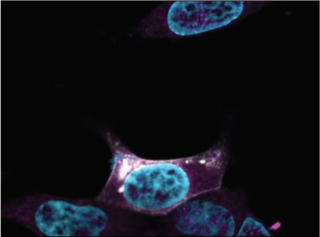Between 5-8% of the human genome consists of sequences with viral origin, namely endogenous retroviruses. These are old pieces of viral genomes that once, millions of years ago, infected our cells and branded them with their DNA sequences. Although endogenous retroviruses no longer code for viral proteins they were once intended to build, their RNA expression has been correlated with several diseases, including lupus.
Not much is known about the series of molecular events that cause lupus, a devastating autoimmune disease in which a patient’s immune system attacks the body’s own organs.
Three award-winning Yale researchers aim to provide reasons for this baffling disease. Sarah Slavoff, Ph.D., associate professor in the Department of Chemistry, Grace Chen, Ph.D., assistant professor in the Department of Immunobiology, Yale School of Medicine (YSM), and Joseph Craft, MD, Paul B. Beeson Professor of Medicine (rheumatology) in the Department of Internal Medicine at YSM and professor of immunobiology were recently named Allen Distinguished Investigators and awarded $1.5 million from the Paul G. Allen Family Foundation, as advised by The Paul G. Allen Frontiers Group to support their project entitled “Discovery of micropeptides in human cells and systemic lupus erythematosus.”
They hypothesize that human endogenous retroviruses produce tiny difficult-to-detect proteins known as micropeptides that could contribute to the presentation of lupus. To prove this, the team will first look for the presence of micropeptides from endogenous retroviruses in healthy human immune cells. Then they will study blood samples from lupus patients to determine if their levels or roles change between healthy immune cells and those in autoimmune disease. Their findings could provide explanations for up to now mystifying pathogenesis.
“There’s a lot of space to work out the genetic and biochemical factors that drive this disease,” said Slavoff. “Our hypothesis is that because it’s already known that some putative noncoding RNAs are upregulated, or specifically expressed in patients who have lupus, some of them might actually be translated to make cryptic small proteins, and micropeptides – those little pieces of protein sequence – could actually hyper-activate the immune system and contribute to the disease.”
The team’s interdisciplinary assignments will bring together Slavoff’s innovative lab technology, Chen’s RNA insights, and Craft’s immunology and rheumatology expertise to hopefully transform patients’ lives.


